Our mission is simple. Make safe and natural food accessible to all, while helping smallholder women farmers scale up the value chain.
We do this by advocating Non Pesticide Management (NPM) cultivation. A sustainable and viable option to chemical-intensive agriculture, beneficial to the economy, environment, cultivator & consumer.
NPM means zero chemical pesticides or GM seeds. Instead bio pest repellants and biofertilizers are used to control pests and aid crop growth.
NPM helps improve the livelihoods of small and marginal farmers by minimising chemical pesticide usage and consequently their cost of cultivation. Lower costs which translate into higher income on hand!
For the end consumer, healthier, safer food is now a practical option. No more paying sky high prices for ‘organic’.
Win win and joy all around.
Straight from the field!
Hear from our NPM network
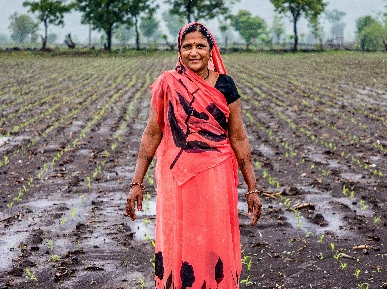
Meera Bai, Bagli, Madhya Pradesh
“My name is Meerabai and I am an NPM farmer from a small village in Bagli, Madhya Pradesh. For a very long time, we, like all the other farmers in the village sowed GM seeds, sprayed chemical pesticides and sold our produce to our local trader at a price that he quoted. Over the years, we could tell that the quality of our land was rapidly deteriorating. Our soil’s texture changed and fertility declined.
Some of the women farmers in the village tried to go back to our traditional practices and adopted Non-Pesticide Management of Agriculture. They were also collectivising to sell their produce together and set up something they called a ‘Farmer Producer Organisation’. As the joining fee was affordable, I decided to join the organisation. Little did I expect that a few years down the line, the small group of women would grow to 4000 and become a registered company, Ram Rahim Pragati Producer Company Limited (RRPPCL).
The NPM Network & Safe Harvest work together to make the process of selling easier for us.”
Training of FPOs
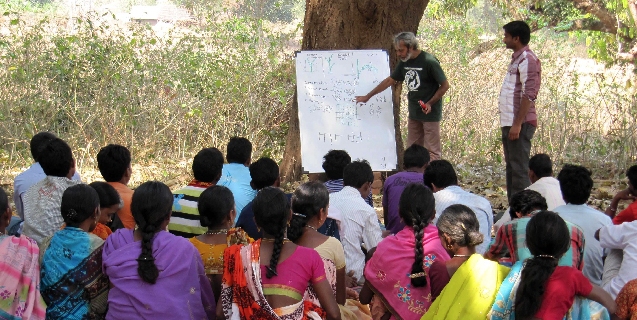
Our association with the NPM Network has been a long one. Years ago, when we were still in our early stages, the network provided us crucial support as we filed paperwork, sought funding and scouted for market opportunities to sell our produce. Today as our FPOs basic requirements are covered, the NPM Network helps strengthen our company by holding frequent sessions on HR, Financial Management & Production Logistics.
Credit Linkages
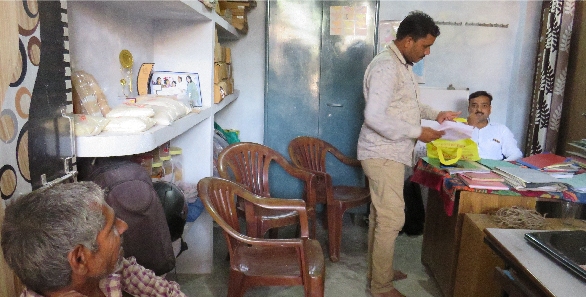
One of the biggest problems for a young FPO is the need for credit. During procurement season, our company has several working capital requirements and with little collateral, we find it hard to secure loans from our local banks. With Safe Harvest & The NPM Network’s help, we have been able to link up with organisations like Nabkisan (subsidiary of NABARD), and Friends of Women’s World Banking, who give much needed credit at reasonable interest rates.
NPM Protocol
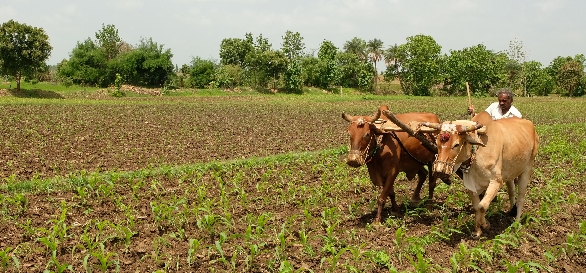
As new farmers keep joining our company, we request the NPM Network to hold sessions about the Pesticide-Free Protocol that NPM farmers are expected to follow. The protocol is also a constant work in progress. As we are able to tell the team what practices suit our land, depending on the climate and geography, they are able to tailor the protocol training for farmers in the area, making it much more fool proof and efficient.
Residue Standards
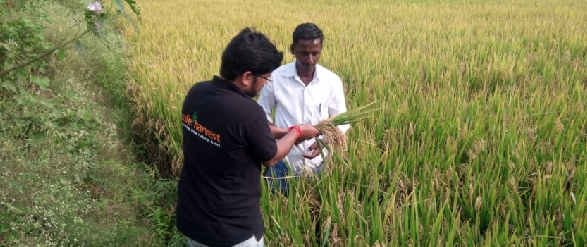
Safe Harvest is very stringent with us when it comes to residue limits. Each time they procure produce from us, they first gather samples and send them to laboratories to test for any traces of chemical residues. If our produce fails the residue test, they cancel the entire lot. As a result, we are very cautious about the use of chemicals not just on our fields but also in those adjoining ours. As the mistake of one farmer can cause the whole procurement to be cancelled, we have zero tolerance towards any farmers who break the NPM Protocol.
Value Addition
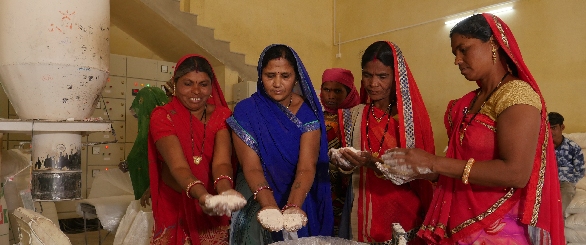
When we first began our association with Safe Harvest, we only gave them raw material and were paid compensation for it accordingly. Now, with the support of the company and adequate funding, we have established a processing unit fully equipped with modern technology. This has made two large differences for us. Firstly, we are able to sell cleaned, graded and processed produce to Safe Harvest and earn a premium for the value addition. Secondly, it has created employment opportunities for several of our farmers who now work at the processing unit.
Financial Impact
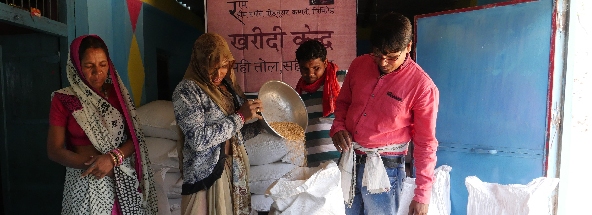
One of the biggest problems for a young FPO is the need for credit. During procurement season, our company has several working capital requirements and with little collateral, we find it hard to secure loans from our local banks. With Safe Harvest & The NPM Network’s help, we have been able to link up with organisations like Nabkisan (subsidiary of NABARD), and Friends of Women’s World Banking, who give much needed credit at reasonable interest rates.
The farmers that are a part of RRPPCL and work with Safe Harvest see a significant improvement in their incomes which is predominantly from three areas:
-Drastic reduction in input costs (from ₹2500 to ₹100/hectare)
-Zero transportation costs as Safe Harvest procures at the farm gate
-Fair weighing practices help our farmers get compensated for every gram of produce sold
All of this together has helped my partner farmers and myself, to increase our total income by over 20% when we sell to Safe Harvest.
When chemical pesticides were introduced to us a few years ago, we were only told about the advantages.Little did we know about the long list of side effects. From quickly deteriorating the quality of our soil to causing long term health effects, chemical pesticides are the equivalent of zeher to the soil and our health. Shifting to NPM agriculture practices has shown us significant improvement in the quality of our soil, no reduction in our yield and most beneficial of all, has led to significantly lower input costs.
Some common NPM methods used by us

Bio-pesticides
We take leaves from Neem, Datura & Custard apple trees, all of which are known for their medicinal qualities. After the leaves are crushed and fermented, we create a concentrate by boiling them together and then spray it on our fields. As the decoction is bitter with a strong smell, it repels the pests from entering our fields.

Pheromone Trap
Twenty-five days after sowing our seeds, we set up a trap to attract and capture moths. This trap helps us understand if there is an upcoming pest attack that we should prepare for.

Bird Perches
Birds are good friends of the fields as they spot worms and feed on them. We set up perches all across the field at a good height to help the birds ngeta better view. The birds eat all the worms and none of the chana from our fields!



